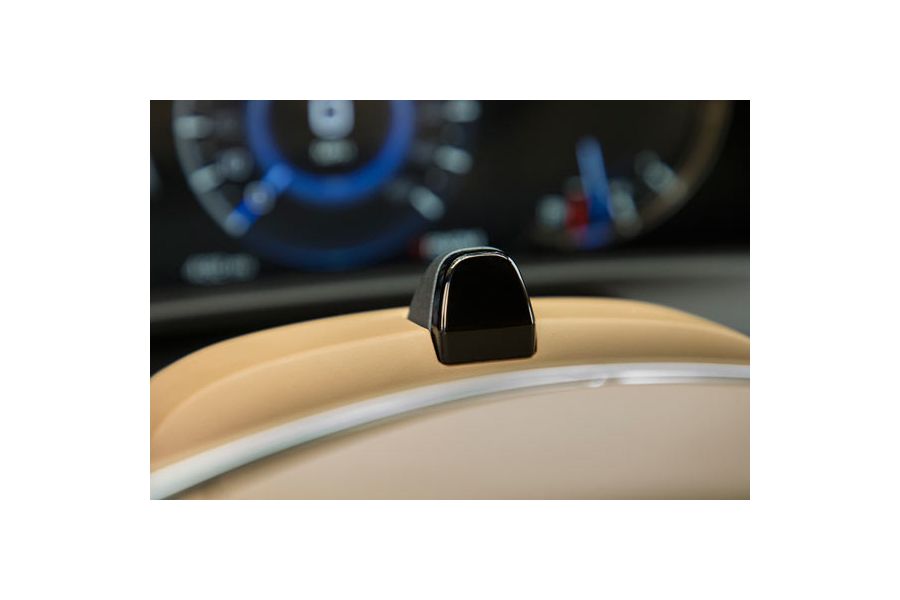Going Along For The Ride With Cadillac's Self-Driving Car

Image caption:The driver attention system uses a small camera located on the top of the steering column and works with infrared lights to determine where the driver is looking whenever Super Cruise is in operation.
Unless you’ve been living a hermit’s life, you’ve probably read or heard about the self-driving cars of the future that will revolutionize vehicular transportation as we know it.
Well, folks, the future is already here. Cadillac’s long-awaited Super Cruise autonomous driving system is not only available to consumers, but we can attest it works as advertised (albeit with some caveats), based on our recent “test drive” across Chicago-area highways.
Super Cruise debuts on the 2018 edition of Cadillac’s flagship CT6 sedan; It comes standard on the top Platinum trim, and is offered as part of a $5,000 option package on the Premium model.
Essentially, the system combines an adaptive cruise control system with an advanced lane keeping function, based on input from a forward-facing camera and advanced GPS sensors, to maintain a set speed and distance from the traffic ahead, while staying within the lane markers, even though curves, in both free-slowing and stop-and-go traffic. Lane changes, however, must be performed manually.
For better or worse, however, the system only works while the car is on a so-called “limited access highway” with defined on- and off-ramps, as defined by the system’s LiDAR-scanned mapping of the entire U.S. and Canadian highway systems. Super Cruise simply won’t work over city streets or ordinary two- or four-lane roads.
After entering a highway and merging into traffic, all one has to do is to situate the vehicle into the center of a lane and the car signals via dashboard and steering wheel-mounted lights that it’s ready to engage. Then after pushing a button on the steering wheel, the lights turn green to signal that the car has, in fact, taken over the task of driving.
We have to admit it was nerve-wracking to cede control of the car and watch the steering wheel turn of its own volition as if being handled by an otherworldly spirit. Still, Super Cruise maintained a perfect line at the center of a lane, and it handled curves in the road confidently. It managed to figure things out nicely when we hit a stretch of recently paved highway that had not been given left-hand lane markers; the car drifted slightly and then hugged closer to the right-side markers until the left lines reappeared.
Unfortunately, you can’t read a book or take a nap while Super Cruise drives the car. That’s because the system keeps a camera firmly focused on the motorist to ensure he or she is monitoring the road and is ready to take control of the vehicle if necessary. Should the the driver be looking away or is otherwise inattentive, the system will give a series of tactile, audible and visual warnings, then will disable itself. Should Super Cruise determine the motorist has become unresponsive, it will bring the vehicle to a controlled stop and contact first responders via the car’s OnStar system.
And, as we found out, it’s a good thing the system operates in this manner, since the operator of an autonomous vehicle still has to remain vigilant of other motorists’ foibles. With traffic slowing down as we headed back into Downtown Chicago, another car abruptly cut us off in a sudden multi-lane swing; fortunately, we reacted immediately and grabbed control of the car – just as the system’s warning chimed in – to narrowly avoid clipping the other vehicle’s rear corner.
No word yet on which other Cadillac models might offer Super Cruise moving forward, or when it might be available on models from other General Motors’ divisions.
Copyright © CTW Features